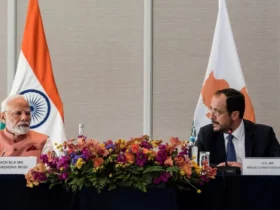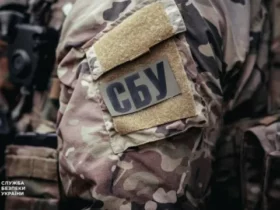There are actually two sides of the same coin…
On one side, there is Türkiye that has become a vital artery for Russia, which is going through political and economic bottlenecks after the Western sanctions. On the other side there is Russia, which has become a gateway for Türkiye, as it drifts away from the West and tries to overcome the difficulties brought by the decades of economic infrastructure integrated with the West.
And these both countries are being targeted by the United States at the same time.
The bridges between these two countries are under attack
When we take a closer look at the current picture, we see that the United States is targeting the bridges, carrying Turkish-Russian relations, with some surgical cuts. Let us take a quick recap on what happened since August:
On August 20th, Darya Dugina, daughter of Alexander Dugin who played an important role in building the Turkish-Russian relations, was murdered. Some with close ties to the Russian government described this assassination as “a message from the Anglo-Saxon camp to the political elites in Turkiye and Russia”.
On August 22nd, the US Department of Treasury sent a letter threatening the industrialists’ and businessmen’s associations operating in Türkiye, especially to TUSİAD, stating that they would be subject to sanctions if they continued their current trade activities with Russia.
And in September, Turkish banks, companies and businessmen that have any assets in Russia, were targeted by the Ministry of Foreign Affairs of Ukraine via a website (sanctions.nazk.ua), sharing detailed personal information. (And we will see if Ukraine, which has targeted Türkiye and the Turkish companies with a directive from the United States, could continue to demand Bayraktar UCAVs anymore.)
On September 13th, the soft underbelly of Turkish-Russian relations took a hit in the Caucasus, where clashes took place between the Azerbaijani and Armenian troops as a result of Armenian provocations. And the so-called “conqueror” of Taiwan, US Senator Nancy Pelosi sent messages from Yerevan, to both Ankara and Moscow.
On September 19th, one of Türkiye’s leading banks IsBank, surrendering to the sanction threats from the United States, announced that it had suspended the use of the Russian payment system Mir.
The actions of the United States however, did not go unanswered:
On September 16th, President Erdogan announced that Turkiye’s ultimate goal is full membership of the Shanghai Cooperation Organization (SCO), in an SCO leaders meeting in Samarkand.
And right after that meeting, Putin shared the plan, which Erdogan first expressed at the beginning of August, that Turkiye would make 25% of its natural gas purchases from Russia in Russian rubles, could be realised soon.
Also, some steps of normalization were taken between Ankara and the Assad government in Syria, which is another area where Turkiye and Russia could have gone against each other.
Russian Deputy Foreign Minister, Mikhail Bogdanov, also stated that the contacts between Ankara and Damascus are currently established at the level of defence ministries and intelligence services, and said, “We support such contacts and encourage these two parties to come together again (…) we are ready to mediate these parties in Moscow, if they are willing”.
When we add up all these actions and counteractions, we reach the following conclusion;
The primary goal of the US in targeting Turkish-Russian relations is to clog the Russia’s economic vital artery and leave Moscow with nowhere to go. Its other goal is to isolate Türkiye, which is already in an economic and political bottleneck, to weaken it and thus make it dependent on itself once again.
The US decision to lift the arms embargo imposed on the Greek Southern Cypriot Administration, together with Greek provocations in the Aegean Sea, can be considered as part of the same plan to weaken Türkiye.
What is the actual goal of Türkiye’s balance policy?
And when we look at the situation Turkiye is in at the moment, it is obvious that the “balance policy” pursued between the West and the East cannot be sustained while being severely targeted by the US.
Former Lebanese Minister of Culture and currently a professor at Sciences Po Institute in Paris, Ghassan Salame, uses the following expressions to implicitly criticise Turkiye’s balance policy: “In the past, being non-aligned (referring to the “Non-Aligned Movement” led by India, Indonesia, Yugoslavia and Egypt) required staying out of the organizations of either camp (the United States or the Soviet Union). But now, it means being a member of as many organizations as you can, even if these organizations are hostile to each other. This is opportunism rather than non-alignment”.
Salame’s statements are of course open to debate, but these statements also raise a question:
Is the balance policy between the West and the East a policy pursued by Turkiye, aiming to create a separate faction, or is it just a transitional phase to cushion the breaking from the West and the integration into Asia?
This subject needs to be discussed further…

















Leave a Reply